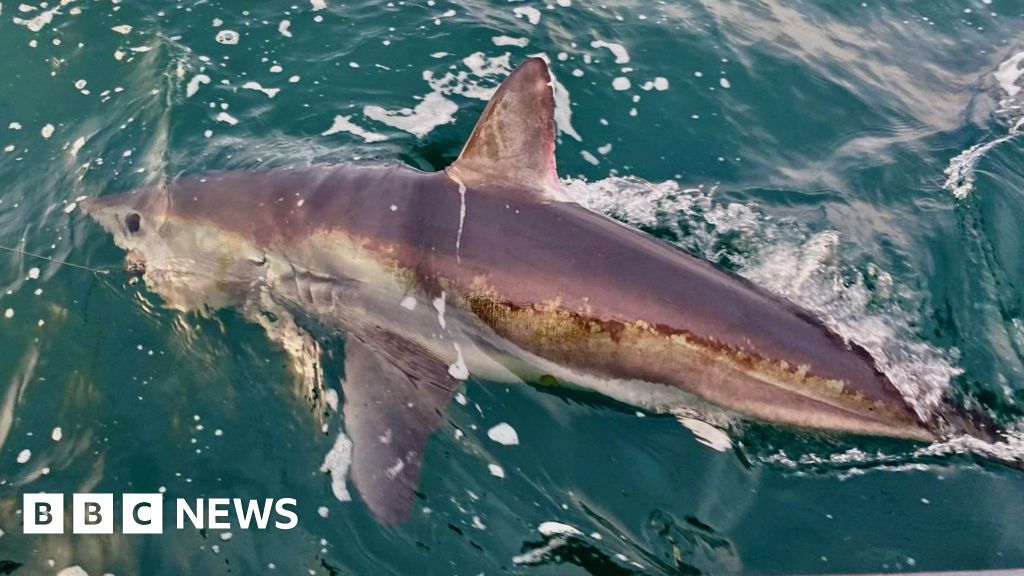Most sharks survived after being released by non-commercial fishermen when angling guidelines were followed, a study has found.
The University of Exeter said researchers tagged nearly 70 blue, porbeagle and tope sharks to track their behaviour after being caught recreationally using the catch-and-release technique.
Fish are put back into the water to help conserve populations when the catch-and-release technique is used, but animal rights groups have said the method could still cause injury or death.
Researchers said out of the sharks tagged in waters around England, Scotland and the Channel Islands, only three died – one from each species – when best practice guidelines were followed.
The tags stayed in place for up to 45 days before detaching and transmitting a location to the research team, which included Edinburgh Napier University and the Government of Jersey.
Researchers said 16 tags were recovered, which allowed for a more detailed investigation into the depth and movement of the sharks after they were released.
It was found after release, all three species swam quickly down to deep water, most likely to escape and to re-oxygenate their gills.
Francesco Garzon, from the University of Exeter, said: “Behaviour after that varied between the different species, but they tended to stay deeper than usual.
“Most individuals appeared to have recovered by 24 hours, although some sharks – especially porbeagles – sometimes took longer.”
Commenting on the sharks which had died, Mr Garzon said these could not be “definitively attributed to any one aspect of being caught” as the the animals had no external wounds and were energetic when released.






